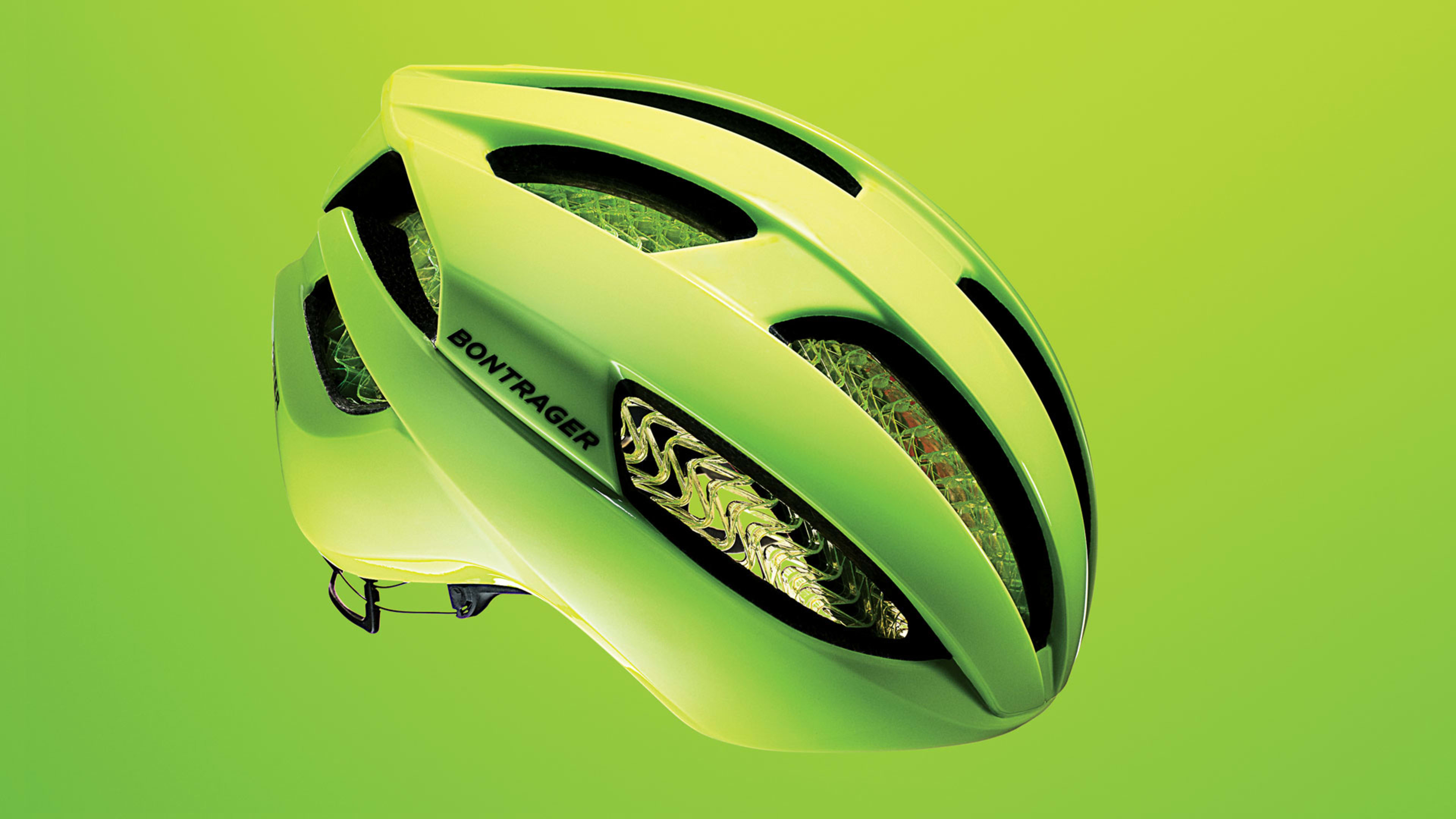For decades, bike helmets have been primarily designed to prevent one thing: skull fractures. Most products are made with EPS foam, the same material used in beer coolers, which simply cushions the head upon impact. But with increasing attention being paid to concussions and other traumatic brain injuries (due, in part, to pro football), finding ways to protect what’s within the skull is becoming top of mind. The new WaveCel Bontrager helmet from Trek Bikes, a leading cycling-gear company based in Waterloo, Wisconsin, is composed of a hard plastic shell lined with a weblike layer of moldable plastic. In the event of a crash, the collapsible lining flexes and then crumples, in a similar way to the crumple zone of a car, to absorb and redirect energy away from the rider’s head and, theoretically, prevent a concussion. “This is a drastic change in the way helmets are constructed,” says Trek Bikes engineering supervisor Tony White. The technology was originally developed by an orthopedic surgeon, Dr. Steve Madey, and a biomechanical engineer, Michael Bottlang, with funding from the National Institutes of Health; they worked with Trek Bikes to bring it to market.
Recognize your brand’s excellence by applying to this year’s Brands That Matter Awards before the early-rate deadline, May 3.
